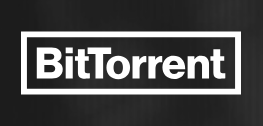SET TV Tells Netflix, Amazon & Hollywood That it’s “No Longer Available”
mercredi 20 juin 2018 à 19:10 Back in April, the Alliance for Creativity and Entertainment (ACE), an anti-piracy partnership forged between Hollywood studios, Netflix, Amazon, and more than two dozen other companies, sued Florida-based Set Broadcast, LLC.
Back in April, the Alliance for Creativity and Entertainment (ACE), an anti-piracy partnership forged between Hollywood studios, Netflix, Amazon, and more than two dozen other companies, sued Florida-based Set Broadcast, LLC.
The entertainment industry companies accused Set Broadcast of running SET TV, an unauthorized IPTV service offering otherwise subscription TV channels and media without appropriate licensing.
“Defendants market and sell subscriptions to ‘Setvnow,’ a software application that Defendants urge their customers to use as a tool for the mass infringement of Plaintiffs’ copyrighted motion pictures and television shows,” the complaint reads.
Despite the legal pressure, SET TV had remained online but that all changed last week when it suddenly disappeared. In response to customer complaints, SET TV implied that technical issues might be to blame and it would eventually return.
However, a filing with a California District court this week reveals that the SET TV ride appears to be over.
“Setvnow is no longer available. It is no longer marketed and subscriptions are no longer sold,” lawyers for Set Broadcast, LLC reveal in their filing.
What follows is a point-by-point addressing of each issue raised in the ACE complaint, with three features catching the eye: acceptance that they offered a content service, claims that they lack knowledge and information on a large number of points, plus repeated use of the word ‘deny’ whenever infringement is mentioned.
Set TV begins by admitting that it sold subscriptions to its service and acknowledging that marketing material detailed in the ACE lawsuit looks familiar. It also concedes that it encouraged users to download and install the Setvnow software on various devices. The company also agrees that it sold a hardware box that was, at least in part, designed to work with the Setvnow service.
However, in response to claims of marketing efforts informing “customers who want more of a cable box experience” that for just $89, they can “simply turn it on and watch TV” without having to do anything more than “PLUG AND PLAY,” the defendants claim to lack knowledge or information.
From here, at least as far as a technical rebuttal to ACE claims go, the responses are relatively blunt and often repetitive to read.
First up, ACE claimed that defendants sold illegal access to their copyright works, but that’s something Set Broadcast flatly denies.
ACE also noted that while the service provided “hallmarks of using authorized streaming services” such as a friendly interface, customers only paid money to Set Broadcast, not the copyright owners. Set Broadcast says it has no knowledge of how customers perceived the service but admits to not paying any money to ACE “for the Setvnow service.”
To the next dozen points, Set Broadcast claims to have “no knowledge or information”, mostly in response to basic statements of fact such as who the plaintiffs are and where their offices are located.
In response to the claim that defendant Jason Labossiere is the owner and operator of Set Broadcast, LLC, Set Broadcast issues a flat denial but offers no additional information. Further details concerning Nelson Johnson, a manager at Set Broadcast, are also picked over, with questions raised over his employment status and place of residence.
From here, Set Broadcast addresses a number of statements made by ACE members regarding who the plaintiffs are, what they do, and what content they own. On each count, Set Broadcast claims to have no knowledge or information, which makes for fairly bland and unconvincing reading.
That being said, Set Broadcast doesn’t shy away from responding on a number of crucial issues. The company acknowledges that promotional material produced by the plaintiffs, showing that the SET TV service offered 500 channels and “thousands” of “on demand” options for $20, is theirs.
It also admits to selling subscriptions and concedes that the SET TV software facilitated streaming of “captured content”, including live content, and delivered it to Setvnow users. The company also admits to using third-party sources for on-demand content.
But despite admitting to many of ACE’s claims over the marketing and provision of the service, whenever the plaintiffs used the word “infringing” to describe the nature of the content delivered to users, Set Broadcast has a one-word response.
“Defendants’ customers use Setvnow for intended and unquestionably infringing purposes, most notably to obtain immediate, unrestricted, and unauthorized access to unauthorized streams of Plaintiffs’ Copyrighted Works,” ACE wrote.
“Deny,” came the response.
“Defendants promote the use of Setvnow for overwhelmingly, if not exclusively, infringing purposes, and that is how their customers use Setvnow,” ACE added.
“Deny,” Set Broadcast repeats.
With a distinct pattern emerging, there’s no need to detail the one-word response to each of ACE’s allegations including that the defendants willfully and intentionally induced and contributed to the infringement of their rights and that ACE members are entitled to damages and Defendants’ profits in amounts to be proven at trial.
The claim that ACE members are entitled to attorneys’ fees plus preliminary and permanent injunctions are also given the same two-syllable treatment. However, at the end of the filing, Set Broadcast springs into life, detailing three affirmative defenses against all of ACE’s charges.
First up, Set Broadcast claims that ACE failed to mitigate damages. Second, the company states that “Plaintiffs’ claims are barred to the extent Plaintiffs have forfeited or abandoned copyright or failed to comply with necessary formalities.” Finally, Set Broadcast suggests it could be an “innocent infringer”.
“Damages are limited under 17 U.S.C. § 504(c)(2) because Defendants ‘were not aware and had no reason to believe that [their] acts constituted an infringement of copyright’,” Set concludes.
Since SET TV is now apparently a thing of the past, it will be interesting to see how this case develops. While Set Broadcast flatly denies any infringement of ACE members’ rights, it doesn’t deny that it’s been running a pay service which facilitates the delivery of third-party content to its customers.
The big questions now are whether the case will ever head to a full trial and if the defenses cited by SET TV provide more than a sliver of hope for the company.
—
A copy of Set Broadcast’s response to ACE’s complaint is available here (pdf)
Source: TF, for the latest info on copyright, file-sharing, torrent sites and more. We also have VPN reviews, discounts, offers and coupons.
 Through a series of new proposals, the European Commission is working hard to modernize EU copyright law.
Through a series of new proposals, the European Commission is working hard to modernize EU copyright law. 
 The Pirate Bay has more than its fair share of technical inconveniences. Every other week the site goes down for a few hours, or days, just to reappear as if nothing ever happened.
The Pirate Bay has more than its fair share of technical inconveniences. Every other week the site goes down for a few hours, or days, just to reappear as if nothing ever happened. 
 Last month, TF broke the news that Justin Sun, the entrepreneur behind the popular cryptocurrency
Last month, TF broke the news that Justin Sun, the entrepreneur behind the popular cryptocurrency